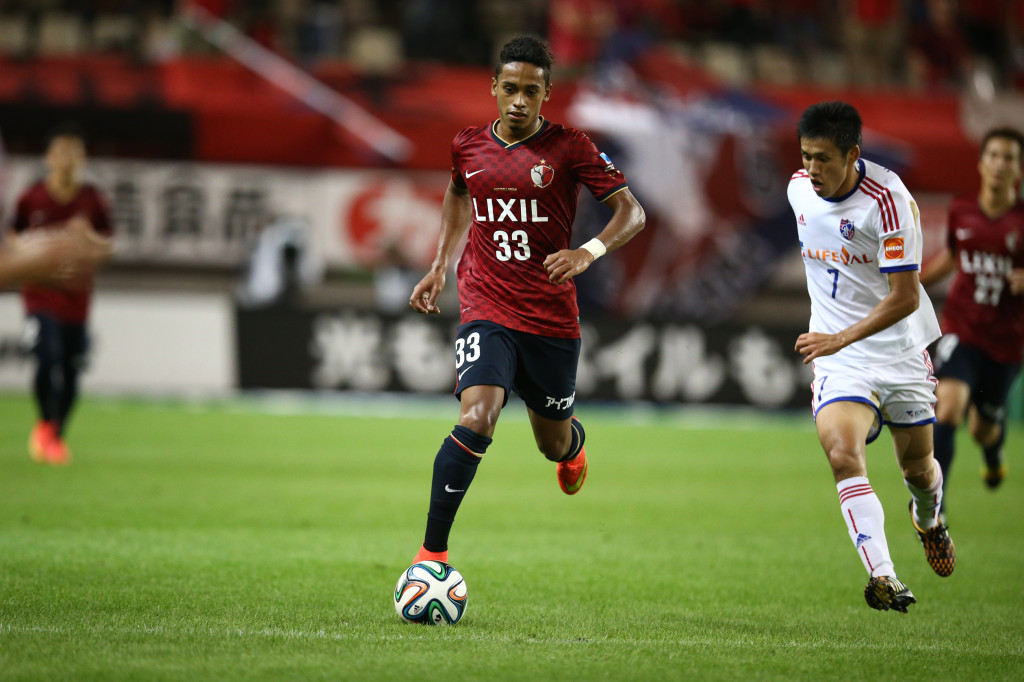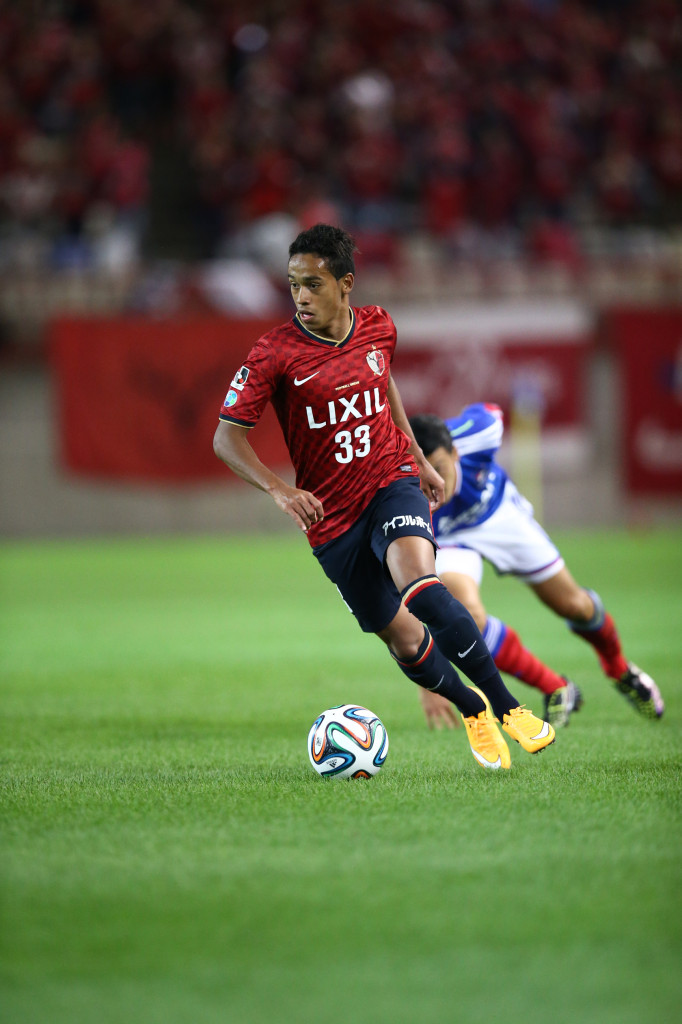Caio for Japan
A Brazilian Samurai in the Making – EXCLUSIVE!
by Tiago Bontempo
The Samurai Blue could have a naturalized Brazilian by the next World Cup – unless Brazil calls him first! At 20 years old and in his debut season as a professional, Caio Lucas Fernandes is one of the brightest prospects in the J.League. His impressive performances for Kashima Antlers have supporters wondering whether he would be willing to represent Japan at international level.

“I would accept it, without any doubt”, he replied without hesitation in an interview with JSoccer Magazine. “This country has helped me a lot, I turned professional here. I think I owe a lot to Japan”, he added.
Born in the city of Araçatuba, Caio played for Brazilian giants São Paulo FC’s youth levels between the ages of 11 and 16 years old. In 2011, when he was 17, he attended a player selection trial promoted by Chiba International High School in Brazil. Caio impressed and was invited to go to Japan to study and play football for them.
The youngster left his family in Brazil and moved alone to the Land of the Rising Sun to see what Japanese football had to offer. But he also needed to study and so began the process of learning the Japanese language. “[At school] everything was in Japanese, the only person who spoke Portuguese was the headmaster. He didn’t speak much, but he helped me a lot.” Now Caio can manage his everyday life on his own and does not need a translator.
In the school’s football team, Caio had the company of a compatriot: Wellington Daniel Bueno, affectionately known as Bueno. One year younger and playing at centre-back, he arrived in Japan via the same route as Caio.
“In the beginning it was difficult to pay attention in the classes, I understood very little. Eventually things improved, but to start with it was really complicated”, Bueno reveals.
Taking part in the Japan national high school tournaments, the two got noticed by scouts of some of the big clubs in J.League. Caio recalls: “We helped take Chiba Kokusai to a historical fourth place [in a national tournament], something that had never happened before. For us personally, too, everything went well and, thankfully we caught the attention of some clubs.”
Caio got a contract with Kashima Antlers in January this year, and, in August, Bueno signed with Shimizu S-Pulse.
In Japan, the transition from high school to professional football often takes a while, with most rookies getting little playing time in their first season in the J.League. “To tell the truth, many didn’t believe I would play”, Caio admitted. “But I am indeed playing, scoring goals, and helping my team”, said the promising youngster.
The Antlers’ no.33 got his J1 debut in matchday 3, against Sagan Tosu, as a substitute. In matchday 6 he got his first start, scored against Gamba Osaka, and cemented his place in Toninho Cerezo’s starting eleven. Deployed mainly as a left midfielder in Antlers’ 4-2-3-1, at the time of writing the Brazilian has seven goals and two assists in 28 J1 games (23 as starter). It’s the most promising start in Kashima Antlers’ history for a player coming straight from high school.

Despite having naturalization in mind, Caio can’t help also thinking about the possibilities of playing for the Brazilian national team, especially after seeing Eduardo, a centre-back who plies his trade in Kashiwa Reysol, receiving a call-up for Alexandre Gallo’s Brazil Olympic squad. “It gave me more motivation”, he told us. “It gave me one more reason to try even harder because you can see they are scouting the whole world. Of course every Brazilian footballer dreams about playing for his national team. It is nice to hear, sometimes, the people here in Japan saying they want me to play for the Samurai Blue. Of course, I still have to wait a while to get the citizenship. But I really feel like doing it”, he admits.
To his mentor, Toninho Cerezo, Caio is, “…still a boy who is shaping himself here in Japan. He grew a lot this year. He is a fast player, who can hold the ball well. He has powerful right-foot finishing. He just needs to refine his vision and make better use of his shooting ability, but these he can improve with training.”
Regarding an eventual naturalization, Cerezo says: “I don’t know. He’s making his own history here in Japan. But he could still be called to Brazil U21. I think his dream is inclined towards Japan because he lives here, he speaks the language, he studied in a Japanese school. He certainly has Japanese traits, like discipline and respect for the opponent. But he still has that Brazilian ‘swing’! He knows how to protect himself and avoid harsh plays. He still needs to mature, but he is on the right path. His future choices will be his alone.”
Follow Tiago on Twitter @GunnerTNB
Images (C) Kashima Antlers, with thanks.